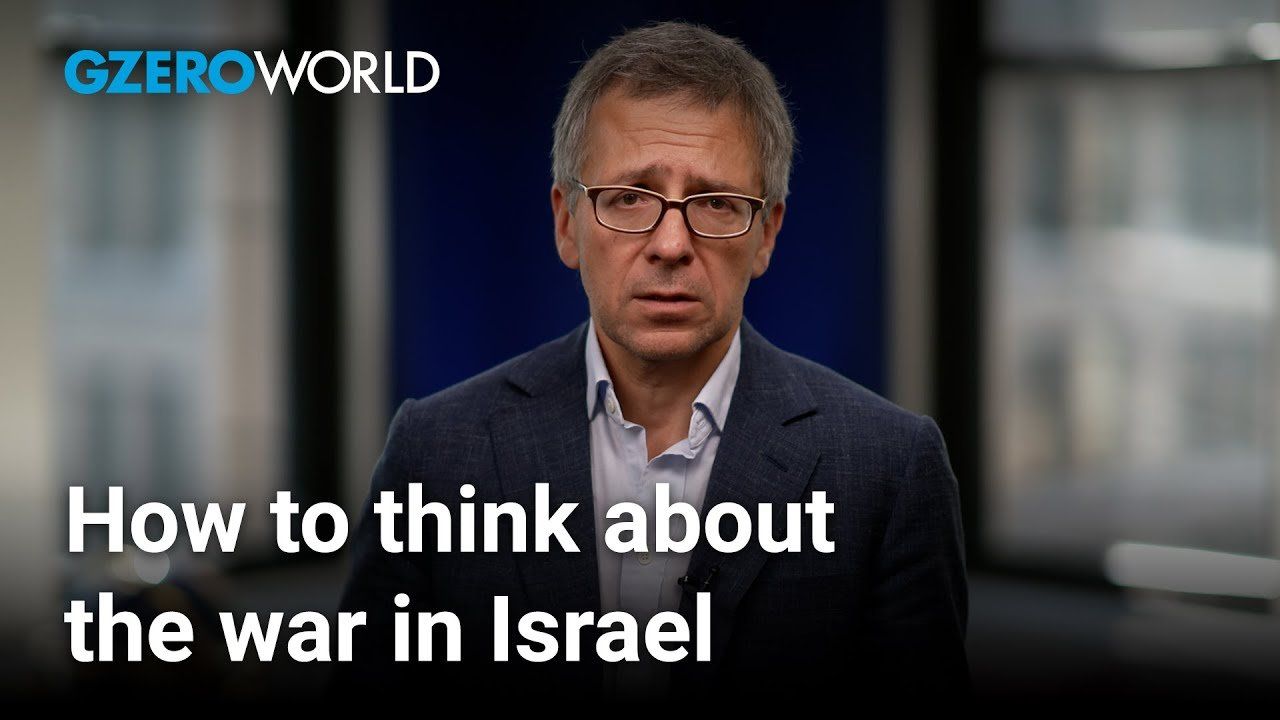GZERO World Clips
Ian Bremmer: Understanding the Israel-Hamas war

Israel-Hamas War: The state of play | GZERO World

Hamas’ shock terrorist attacks cut deep into Israel's territory. That psychological trauma compounds the shock for millions of Israelis that their world-class intelligence and security forces completely missed the warning signs. That’s why comparisons with the 9/11 attacks on the US are the right analogy – Israel’s weakness was, in part, a failure of imagination, Ian Bremmer explains on GZERO World.
Now to Gaza. Hamas has launched a suicidal war, and Palestinians will pay dearly for it. But why did Hamas move now? In part because of their deteriorating position: blockaded by Israel and Egypt, the economy in Gaza was terrible and getting worse. Meanwhile, the geopolitics were leaving the Palestinians behind. Israel is in its strongest geopolitical position in decades and was on the verge of signing a historic peace deal with Saudi Arabia. The severity of Israel’s expected response – a ground invasion that will result in thousands of Palestinian deaths – makes that politically untenable for the Saudis now.
Despite the international outcry at this growing Palestinian death toll, Israel will be politically unified to a degree we haven’t seen in decades. After all, Hamas carried out the worst massacre of Jews since the Holocaust. Consequently, the recent domestic discord over Netanyahu’s efforts to weaken Israel’s courts will quiet down, at least until the security situation is brought under control. Last week, Prime Minister Benjamin Netanyahu agreed to form an emergency unity government with centrist opposition leader and former defense minister Benny Gantz. But make no mistake: Israeli domestic political polarization will return, and Netanyahu will have to explain the spectacular intelligence and security failures that allowed this to happen. And even if IDF forces manage to crush Hamas in Gaza, a long-term resolution to the Israeli-Palestinian conflict will remain as elusive as ever.
For now, outsiders, including the Biden administration, will work hard to keep this conflict within Israel’s borders. Iran, the crucial Hamas patron and arms supplier, has celebrated the Hamas attack, but it has been careful not to accept any direct responsibility for it. All eyes are now on Iran-backed Hezbollah forces to Israel’s north in Lebanon to be sure they don’t try to broaden the conflict. This wildfire is raging, and it will take a tremendous international effort to put it out. Many innocent people will find themselves trapped inside the inferno.
In this Quick Take, Ian Bremmer addresses the killing of Alex Pretti at a protest in Minneapolis, calling it “a tipping point” in America’s increasingly volatile politics.
Who decides the boundaries for artificial intelligence, and how do governments ensure public trust? Speaking at the 2026 World Economic Forum in Davos, Arancha González Laya, Dean of the Paris School of International Affairs and former Foreign Minister of Spain, emphasized the importance of clear regulations to maintain trust in technology.
Will AI change the balance of power in the world? At the 2026 World Economic Forum in Davos, Ian Bremmer addresses how artificial intelligence could redefine global politics, human behavior, and societal stability.
Ian Bremmer sits down with Finland’s President Alexander Stubb and the IMF’s Kristalina Georgieva on the sidelines of the World Economic Forum to discuss President Trump’s Greenland threats, the state of the global economy, and the future of the transatlantic relationship.